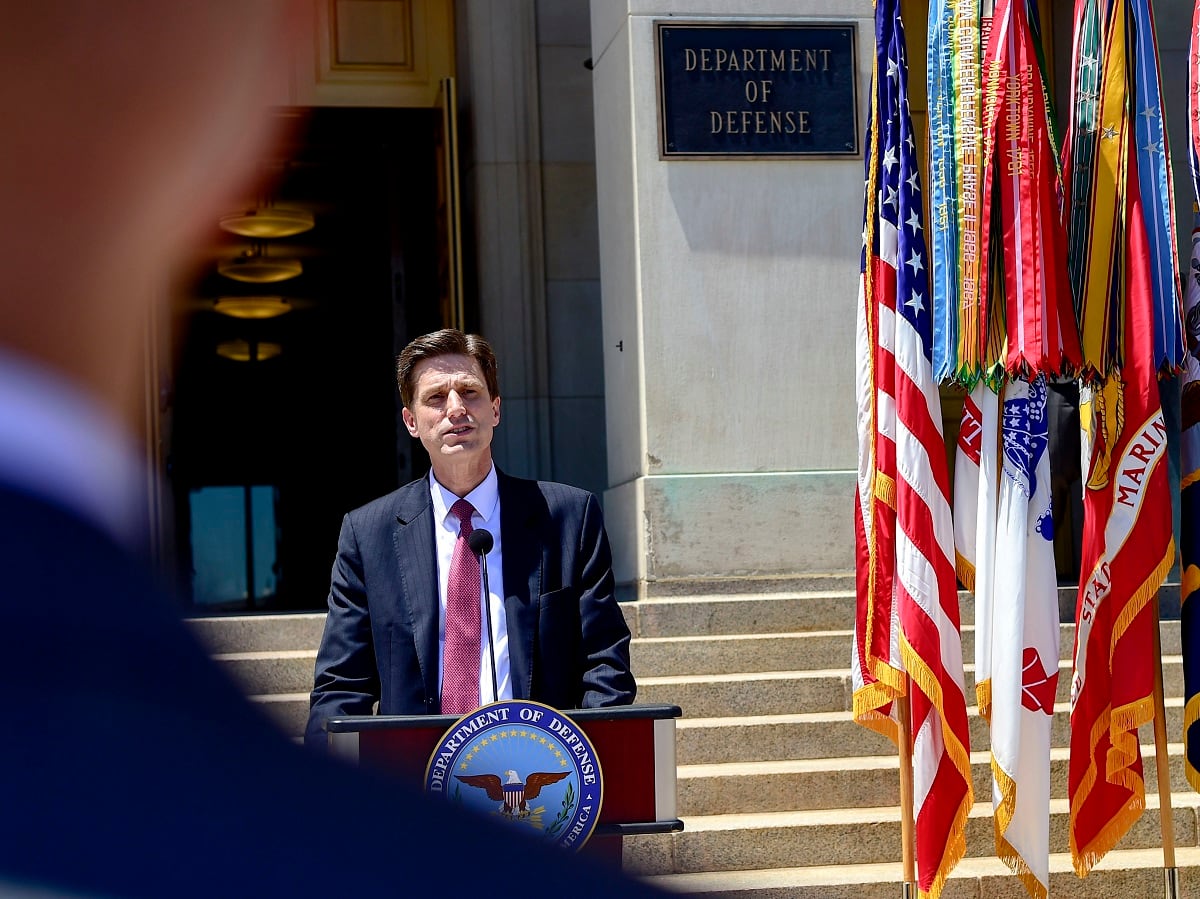LONDON – Fundamentally, artificial intelligence can’t work without access to massive amounts of data to train the algorithm on what to look for, what to ignore and how to respond. But for many firms, that data is proprietary.
So how will Boeing handle sharing its data in the era of AI? By being flexible, according to CEO Dennis Muilenburg.
“You’re going to see variety of business models on that front. Data is becoming more and more important for all of our customers, defense and commercial, and there are a variety of visions for how you can leverage that data,” Muilenburg said July 15 ahead of the Farnborough Airshow.
“Some of that will be owned by the U.S. government or other governments that are coding these development programs. Some of these will be shared data. Some will be intellectual property that we will license.”
Muilenburg said defense customers are driving the conversation around sharing data for AI in a way the commercial sector isn’t. Given that the government customer is often the one that has most demands on data rights, that statement is notable.
RELATED

“There are a variety of business models, and we have to be comfortable with the fact there have to be a variety of business models,” he concluded.
Leanne Caret, Boeing’s defense head, echoed those comments, saying “we will be handling this on an individual basis, depending on what the services, what the country is, what the customer is, and what works best for us collectively.”
“And there are a lot of ways about which we can do this in terms of the business model and the technology innovation itself,” she added.
Stan Deal, president of Boeing Global Services, noted that the commercial side is bringing in around $1 billion in revenue annually in just data analytics, so the company has some experience selling its data.
But the big dollars really come from how Boeing can apply that data to help find savings, with Deal saying there are great opportunities to find savings in maintenance and repair of both commercial and military systems.
Aaron Mehta was deputy editor and senior Pentagon correspondent for Defense News, covering policy, strategy and acquisition at the highest levels of the Defense Department and its international partners.








